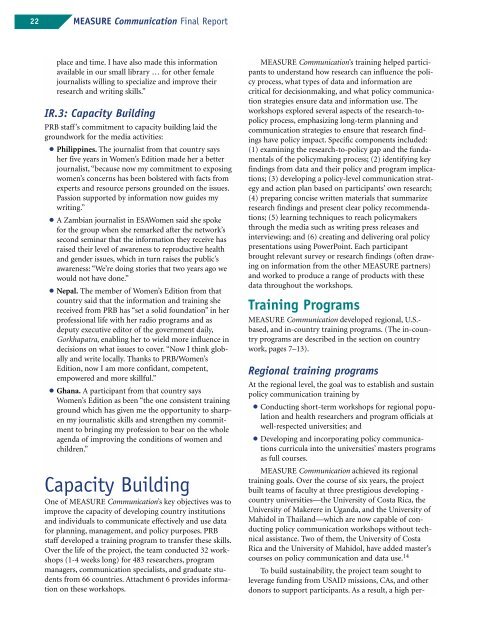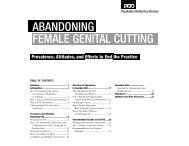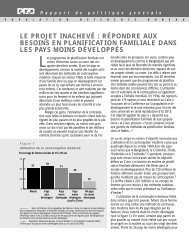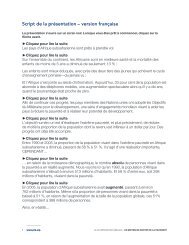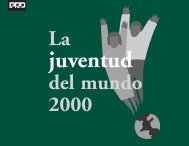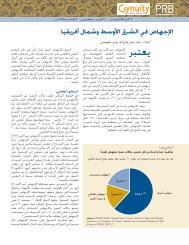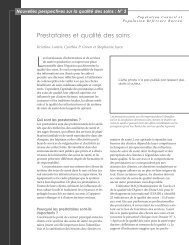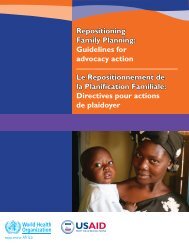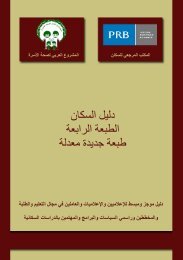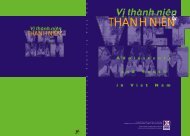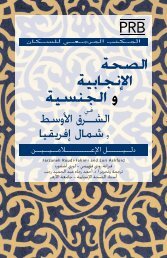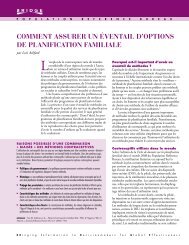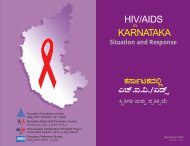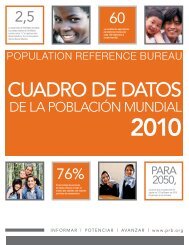MEASURE Communication Final Report - Population Reference ...
MEASURE Communication Final Report - Population Reference ...
MEASURE Communication Final Report - Population Reference ...
You also want an ePaper? Increase the reach of your titles
YUMPU automatically turns print PDFs into web optimized ePapers that Google loves.
22 <strong>MEASURE</strong> <strong>Communication</strong> <strong>Final</strong> <strong>Report</strong><br />
place and time. I have also made this information<br />
available in our small library … for other female<br />
journalists willing to specialize and improve their<br />
research and writing skills.”<br />
IR.3: Capacity Building<br />
PRB staff’s commitment to capacity building laid the<br />
groundwork for the media activities:<br />
● Philippines. The journalist from that country says<br />
her five years in Women’s Edition made her a better<br />
journalist, “because now my commitment to exposing<br />
women’s concerns has been bolstered with facts from<br />
experts and resource persons grounded on the issues.<br />
Passion supported by information now guides my<br />
writing.”<br />
● A Zambian journalist in ESAWomen said she spoke<br />
for the group when she remarked after the network’s<br />
second seminar that the information they receive has<br />
raised their level of awareness to reproductive health<br />
and gender issues, which in turn raises the public’s<br />
awareness: “We’re doing stories that two years ago we<br />
would not have done.”<br />
● Nepal. The member of Women’s Edition from that<br />
country said that the information and training she<br />
received from PRB has “set a solid foundation” in her<br />
professional life with her radio programs and as<br />
deputy executive editor of the government daily,<br />
Gorkhapatra, enabling her to wield more influence in<br />
decisions on what issues to cover. “Now I think globally<br />
and write locally. Thanks to PRB/Women’s<br />
Edition, now I am more confidant, competent,<br />
empowered and more skillful.”<br />
● Ghana. A participant from that country says<br />
Women’s Edition as been “the one consistent training<br />
ground which has given me the opportunity to sharpen<br />
my journalistic skills and strengthen my commitment<br />
to bringing my profession to bear on the whole<br />
agenda of improving the conditions of women and<br />
children.”<br />
Capacity Building<br />
One of <strong>MEASURE</strong> <strong>Communication</strong>’s key objectives was to<br />
improve the capacity of developing country institutions<br />
and individuals to communicate effectively and use data<br />
for planning, management, and policy purposes. PRB<br />
staff developed a training program to transfer these skills.<br />
Over the life of the project, the team conducted 32 workshops<br />
(1-4 weeks long) for 483 researchers, program<br />
managers, communication specialists, and graduate students<br />
from 66 countries. Attachment 6 provides information<br />
on these workshops.<br />
<strong>MEASURE</strong> <strong>Communication</strong>’s training helped participants<br />
to understand how research can influence the policy<br />
process, what types of data and information are<br />
critical for decisionmaking, and what policy communication<br />
strategies ensure data and information use. The<br />
workshops explored several aspects of the research-topolicy<br />
process, emphasizing long-term planning and<br />
communication strategies to ensure that research findings<br />
have policy impact. Specific components included:<br />
(1) examining the research-to-policy gap and the fundamentals<br />
of the policymaking process; (2) identifying key<br />
findings from data and their policy and program implications;<br />
(3) developing a policy-level communication strategy<br />
and action plan based on participants’ own research;<br />
(4) preparing concise written materials that summarize<br />
research findings and present clear policy recommendations;<br />
(5) learning techniques to reach policymakers<br />
through the media such as writing press releases and<br />
interviewing; and (6) creating and delivering oral policy<br />
presentations using PowerPoint. Each participant<br />
brought relevant survey or research findings (often drawing<br />
on information from the other <strong>MEASURE</strong> partners)<br />
and worked to produce a range of products with these<br />
data throughout the workshops.<br />
Training Programs<br />
<strong>MEASURE</strong> <strong>Communication</strong> developed regional, U.S.-<br />
based, and in-country training programs. (The in-country<br />
programs are described in the section on country<br />
work, pages 7–13).<br />
Regional training programs<br />
At the regional level, the goal was to establish and sustain<br />
policy communication training by<br />
● Conducting short-term workshops for regional population<br />
and health researchers and program officials at<br />
well-respected universities; and<br />
● Developing and incorporating policy communications<br />
curricula into the universities’ masters programs<br />
as full courses.<br />
<strong>MEASURE</strong> <strong>Communication</strong> achieved its regional<br />
training goals. Over the course of six years, the project<br />
built teams of faculty at three prestigious developing -<br />
country universities—the University of Costa Rica, the<br />
University of Makerere in Uganda, and the University of<br />
Mahidol in Thailand—which are now capable of conducting<br />
policy communication workshops without technical<br />
assistance. Two of them, the University of Costa<br />
Rica and the University of Mahidol, have added master’s<br />
courses on policy communication and data use. 14<br />
To build sustainability, the project team sought to<br />
leverage funding from USAID missions, CAs, and other<br />
donors to support participants. As a result, a high per-


